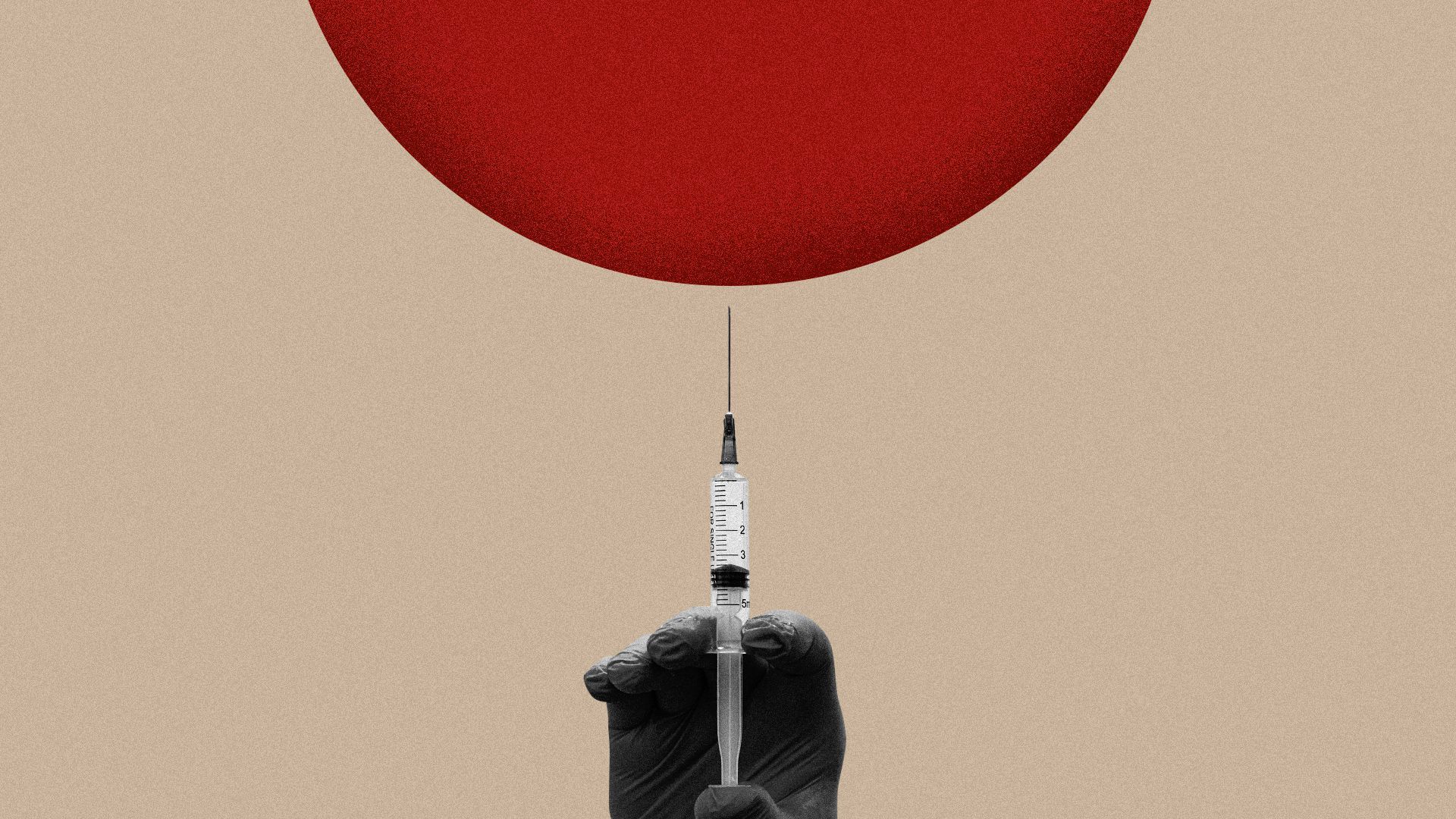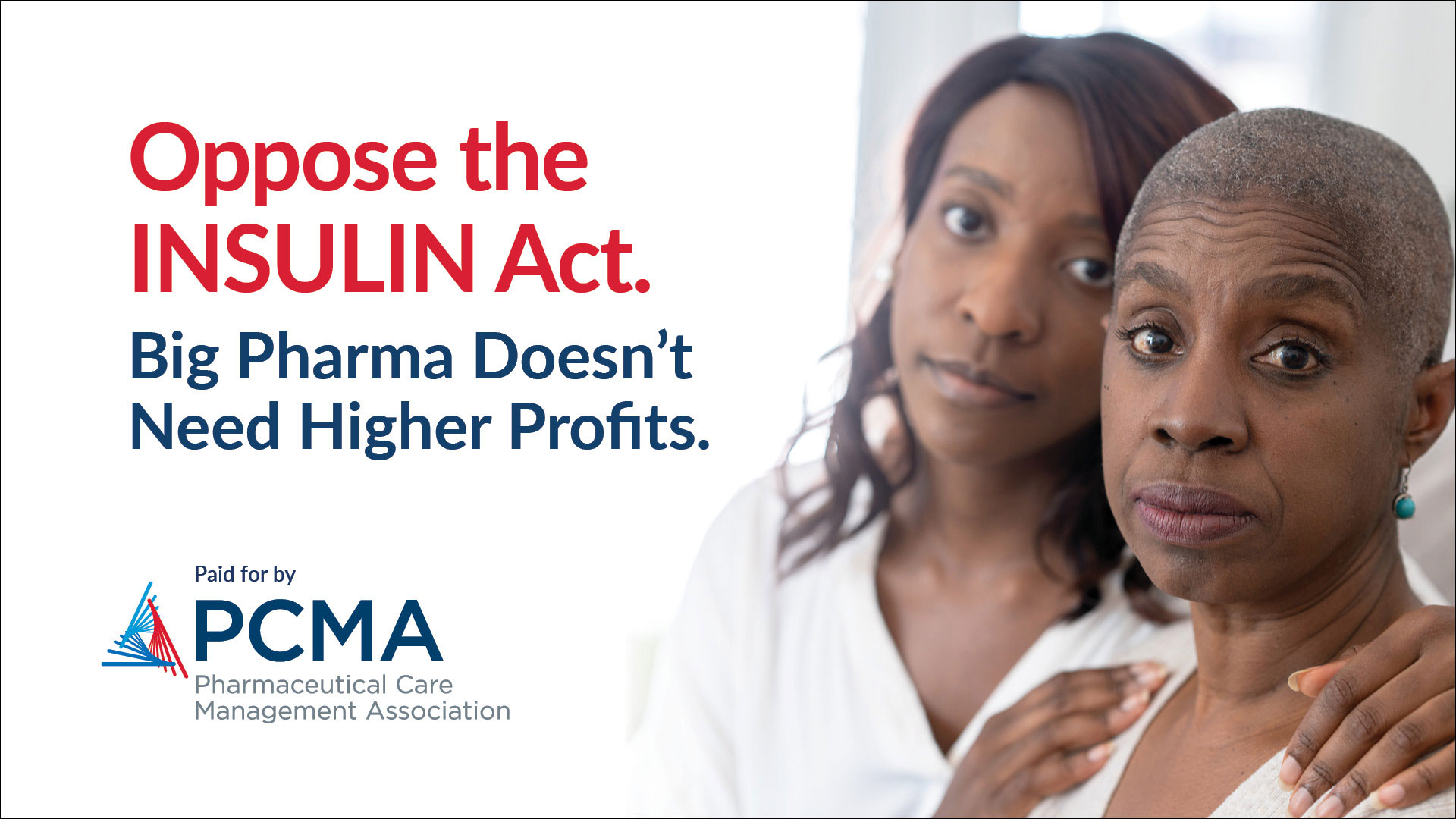| |
| |
| |
| Presented By Pharmaceutical Care Management Association |
| |
| Axios Vitals |
| By Adriel Bettelheim · Jul 29, 2022 |
| We made it to Friday, Vitals gang. Situational awareness: The Biden administration will begin offering updated COVID-19 boosters in September that are expected to offer stronger protection against the BA.5 subvariant. That means federal officials will not expand eligibility for second booster shots of existing vaccines. Today's newsletter is 900 words, or a 3-minute read. |
| |
| |
| 1 big thing: Flooding the zone |
 |
|
| Illustration: Aïda Amer/Axios |
| |
| Despite ballooning monkeypox cases, the Biden administration believes it can stay ahead of and eventually end the outbreak by flooding states with more vaccines in the next week, Axios' Arielle Dreher writes. Why it matters: It's a political gamble. If the virus keeps spreading and demand outstrips doses, the administration will have to ask Congress for more money or declare a public health emergency to free up additional resources. Driving the news: Health and Human Secretary Xavier Becerra ruled out the immediate need for either option on Thursday but said HHS is monitoring the country's response to an outbreak that's resulted in nearly 5,000 confirmed cases. - Starting this weekend, states and local jurisdictions can order more doses from a tranche of 786,000 that HHS is making immediately available.
- Declaring a public health emergency could significantly crimp testing until the FDA officially authorizes individual tests.
- "That would be a major problem if we were back in that space," Jeffrey Klausner, public health professor at the University of Southern California's Keck School of Medicine, told Axios, recalling similar issues during the early days of the COVID-19 pandemic.
Some localities are running short on supplies, and many public and sexual health clinics are still playing catch-up. - D.C. Health in Washington was forced to cancel second-dose appointments this week, and shortages have led to inequities in testing, treatment and vaccinations, Axios' Chelsea Cirruzzo writes.
Go deeper. |
    |
| |
| |
| 2. 20% of public fear getting monkeypox |
 Data: Annenberg Public Policy Center; Chart: Simran Parwani/Axios About 20% of Americans are afraid they'll soon contract monkeypox, but there are still some significant holes in the public's understanding of the virus, according to a new survey from the Annenberg Public Policy Center. The big picture: These early stages of monkeypox outbreaks aren't nearly as dangerous as early COVID outbreaks were, but some of the challenges for public health officials — such as educating people about a virus they're not familiar with, and mobilizing vaccination efforts — are similar. Details: One in five Americans are worried about getting monkeypox in the next three months, the Annenberg survey found. - Nearly half are unsure whether monkeypox is less contagious than COVID, although 69% correctly identified the way it usually spreads (through close contact with an infected person).
- Two-thirds said they either don't think there's a vaccine for monkeypox, or aren't sure.
Misinformation and conspiracy theories are also a problem. - 12% of respondents in the Annenberg survey said they believe the monkeypox virus was probably or definitely created in a lab; 21% said they were not sure whether it was caused by exposure to a 5G signal.
Go deeper. |
    |
| |
| |
| 3. Workers on the hook for more medical costs |
 Data: Spiegel, et al., 2022, " Recent Trends in Patient out-of-Pocket Cost Sharing"; Chart: Kavya Beheraj/Axios The growth of high-deductible health plans led to people with employer-sponsored coverage paying for a larger share, on average, of their health care costs between 2013 and 2019, Axios' Caitlin Owens writes from a new analysis by the Employee Benefit Research Institute. Why it matters: A large portion are paying significantly more in terms of raw dollar amounts, too, with the biggest increases among the highest spenders — and that's on top of premium increases. As costs rise, even many insured patients struggle to afford their care. Yes, but: Out-of-pocket spending decreased during 2020, likely a byproduct of the way the pandemic disrupted the health care system and pandemic-era policies that may have lightened patients' cost burden. By the numbers: The share of their medical expenses paid by people enrolled in employer-sponsored coverage increased from 17.4 percent in 2013 to 19 percent in 2019, the analysis found. It declined to 16.2 percent in 2020. - Enrollees spent a median $249 out-of-pocket in 2013, $287 in 2019, and $205 in 2020. This median includes people without any medical expenses. The average out-of-pocket costs rose from $737 in 2013 to $906 in 2019, falling to $811 in 2020.
Go deeper. |
    |
| |
| |
| A message from Pharmaceutical Care Management Association |
| PBMs support lower insulin costs for patients |
| |
 |
| |
| Drug manufacturers alone set insulin prices. The INSULIN Act is a windfall for Big Pharma and will inflate insulin costs by $23 billion for the federal government and billions more for state governments and the health care system. Learn more about PBM's efforts to lower patients' insulin costs. |
| |
| |
| 4. Study links head trauma to CTE |
 |
|
| Illustration: Annelise Capossela/Axios |
| |
| For the first time, there's conclusive evidence that repeated head trauma leads to chronic traumatic encephalopathy (CTE), an incurable brain disease, Axios' Kendall Baker and Jeff Tracy write. Why it matters: A new study, carried out by nine universities and the Concussion Legacy Foundation, determined that athletes in contact sports are 68 times more likely to develop CTE than the general public. - The researchers are calling on sports and government bodies to implement prevention and mitigation efforts, especially for children, who are "too young to legally consent to any potential long-term risks."
The backdrop: This report comes amid a flurry of CTE-related news, as the shadow it casts across the sports world continues to grow. - The English Football Association (FA), which has banned headers in soccer practice for children under 12 since 2020, announced a trial on Monday to extend that ban to games.
- Nearly 200 rugby players plan to sue the sport's governing bodies for failing to protect them from permanent brain injury caused by repeated concussions.
What we're watching: CTE is most often linked with hard-hitting sports like football and rugby. Now it's soccer — which doesn't have constant collisions but does have headers — that's facing a reckoning. - Banning headers more widely would fundamentally alter the world's most popular sport.
Go deeper. |
    |
| |
| |
| 5. Catch up quick |
| The Biden administration released guidance reiterating that free birth control is guaranteed under the Affordable Care Act, regardless of which state a person might live in. (Axios) The mental health hotline network is expanding, but rural areas still face care shortages. (Kaiser Health News) Supreme Court Justice Samuel Alito mocked foreign criticism of the decision he penned to reverse Roe v. Wade during a speech in Rome. (CNN) |
    |
| |
| |
| A message from Pharmaceutical Care Management Association |
| PBMs support lower insulin costs for patients |
| |
 |
| |
| Drug manufacturers alone set insulin prices. The INSULIN Act is a windfall for Big Pharma and will inflate insulin costs by $23 billion for the federal government and billions more for state governments and the health care system. Learn more about PBM's efforts to lower patients' insulin costs. |
| |
 | | Why stop here? Let's go Pro. | | |








No comments:
Post a Comment